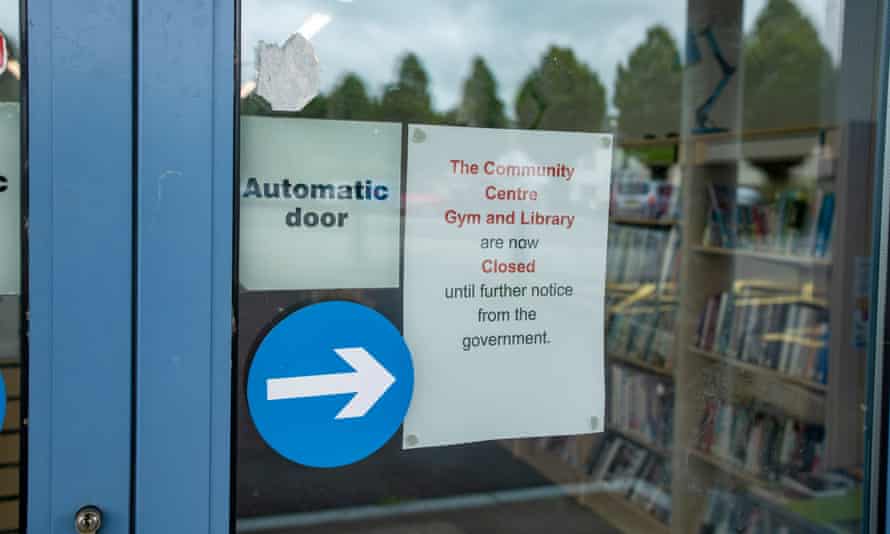School-building projects, swimming pools and libraries have been earmarked for emergency funding cuts because town halls have been hit by an unexpected £1.7bn hole in their budgets, the Guardian can reveal.
Rampant inflation and soaring energy bills mean that council leaders have been forced to rip up financial plans from a few months ago, with higher than anticipated staff pay bills also contributing to their newfound deficits. Without help from Whitehall, it will leave them no option but to cut services and put up council tax next April.
Local authority leaders are understood to have already approached ministers to ask for extra financial support to cushion the impact of rapidly rising costs, which they said will reduce their capacity to support residents facing the cost of living crisis.
Georgia Gould, leader of Camden council and chair of London councils, warned that without an increase in grant funding, the crisis would undermine the local safety net and force leaders “to make reductions to services, affecting those residents who need them most”.
There are concerns local government faces the kind of drastic financial pressures it last experienced during the pandemic, when the government was forced to pump billions into council budgets to avert what the National Audit Office called “system-wide financial failure”.
“This is the worst crunch in terms of inflationary pressures on council budgets we’ve seen for decades. Councils face really difficult decisions in terms of services and capital projects,” said Rob Whiteman, the chief executive of Cipfa, the local government treasurers’ body.
The deterioration in the financial outlook is rapid and unexpected. In January, when 2022-23 budgets were agreed, councils were typically factoring in average pay and inflation costs of about 3%. However, inflation is currently 9%, with the Bank of England predicting it to hit 11% by October.
Most local authorities already have in place challenging multimillion-pound savings plans for this year, and some privately fear that having to go back and find additional spending cuts could tip them close to effective bankruptcy.
“It’s not clear government yet recognises this has the potential to have a major financial impact, and will disrupt its levelling up plans. This not routine council whingeing about council funding. This is a genuinely serious issue we all face,” said Sharon Taylor, the Labour leader of Stevenage borough council and vice-chair of the District Councils Network.
The government accepts that inflation is higher than it was when councils’ spending review settlement was announced last autumn, but is not convinced that all areas of town hall spending are sensitive to inflation. It insists some services may be insulated from cost increases by multi-year contracts with suppliers.
A government spokesperson said it had given an extra £3.7bn to English councils this year to ensure they can deliver key services. “We are working with the sector to understand the impact of emerging challenges on local authorities and stand ready to speak to any council that has concerns about its ability to balance its budgets,” the spokesperson said.
Conservative local government politicians, however, believe without extra funding councils have little option but to cut services, or put up council tax. The Tory leader of North Yorkshire council and chair of the County Councils Network, Carl Les, this week said councils were gearing up for “a winter of difficult decisions”.

Major capital schemes are under threat, with construction cost increases of up to 25% threatening the viability of regeneration schemes and school and housebuilding projects. Many of these will be mothballed or cancelled, councils fear, while pothole filling and other road repair programmes will be scaled back.
Councils believe the effects of rising energy and fuel costs will be seen in every council service, from the cost of fuel for care workers’ cars, refuse trucks and school transport taxi services, to heating bills for care homes, swimming pools and libraries.
A big area of concern is the local government pay bill, which accounts for 50-60% of town hall costs. Many councils assumed a 2% pay rise for 2022-23, but unions this month submitted a 10% pay rise, and further extra costs are expected related to the “national living wage” uprating.
Paying the forecasted increase in the national living wage for the lowest paid council staff alone could cost councils at least £400m over the next two years, the Local Government Association said. Without central government support to cover this cost, councils would be forced to cut jobs and services, it added.
Councils also anticipate a increase in demand for services as people struggle with the cost of living crisis. Some are expecting a knock-on effect from steep rises in private sector housing rents to lead to a rise in evictions, driving up pressure on homelessness services, particularly spending on temporary accommodation.
The Sigoma group, which represents 47 urban authorities and covers about a quarter of all English council spending, including the cities of Sheffield, Manchester, Liverpool and Leeds, has warned inflation will create a financial shortfall of £570m in its members’ budgets this year.
Sign up to First Edition, our free daily newsletter – every weekday morning at 7am BST
The London Councils group, which lobbies for the 32 London boroughs, estimates its members will have to find an extra £400m of savings between now and next April. The District Councils Network, which represents 183 councils, has not calculated a figure but has warned councils face severe challenges.
A County Councils Network survey of its 40 members, from Kent, Essex and the home counties to Durham and Cornwall, revealed collective unfunded costs this year of £730m, calling them “extraordinary additional costs at a time when budgets were already under strain”.
Although English councils did have a headline real terms increase in core spending power for 2022-23, they argue that this has been eroded by inflation and rising demand for services caused by the cost of living crisis.
Source: Guardian







